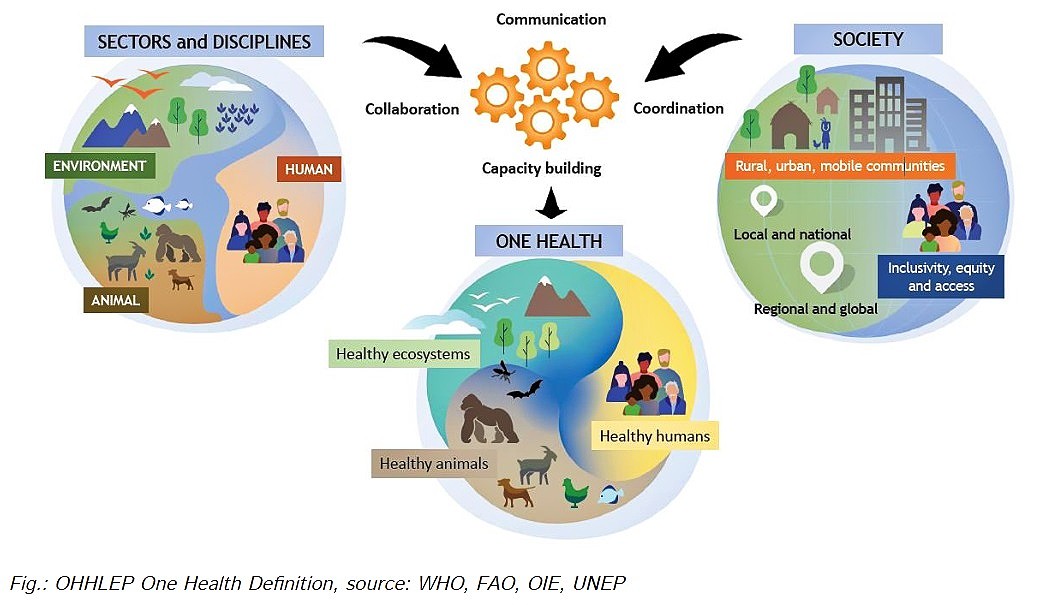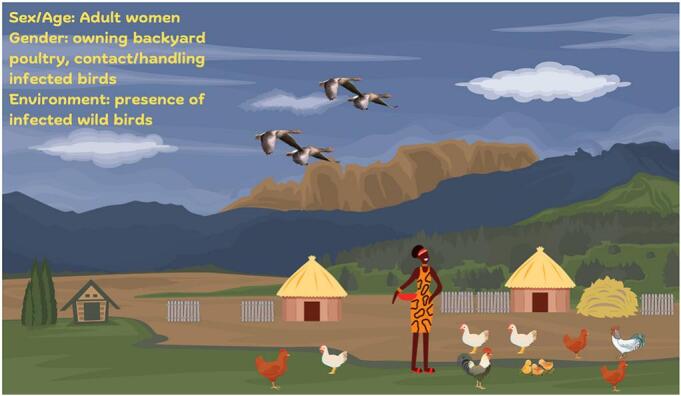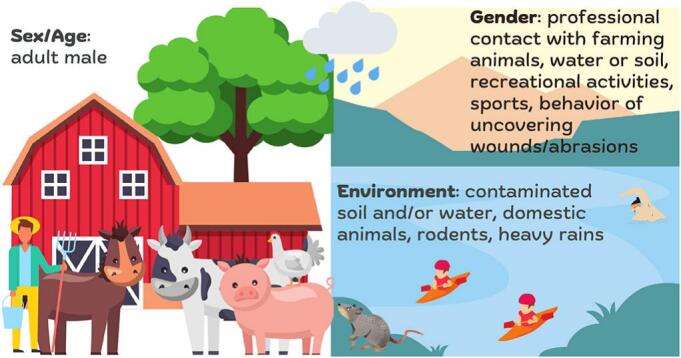While the interface of humans, animals, plants, and the ecosystem, a.k.a. One Health, affects us all, it affects some more than others. There is a case to be made that reflects the vulnerabilities of girls and women to a greater extent than men. On both sides of the gender divide, there is a confluence of interests to pursue common cause.
In addressing the wide swath of discrimination, much of the focus on gender equality has been on economic and social issues. But there are other aspects where differentiated treatment needs to be taken into account, both in terms of opportunity and risk.
The subject of “gender” which is often intended to focus on the treatment of females, has become a priority in many countries, regions, and in the international biosphere. This has taken much time and advocacy over many years, and is now recognized as a concern that affects virtually every aspect of life.
By comparison, the concept of the interface between animals, humans, plants, and the environment, i.e. “One Health”, has had much greater difficulty in garnering traction. Yet the two have much in common, namely achieving the well-being of both depends on acceptance by society across many divides and translating rhetoric into fundamental change.
The One Health Commission provides a slide series on this subject, developed by J. Hellen Amuguni, associate professor at Tufts University Cummings School, in collaboration with OHCEA. The first two slides succinctly set out the issue:

Defining the Two
To have some perspective on this very complex subject, it is helpful to be clear-eyed and have simple definitions of both, however incomplete:
Gender
Often use the terms “sex” and “gender” are considered interchangeably, but this is incorrect. Gender refers to the socially constructed roles, behaviors, expressions and identities of girls, women, boys, men, and gender-diverse people.
One Health
One Health is an integrated, unifying approach that aims to sustainably balance and optimize the health of people, animals and ecosystems. It recognizes the health of humans, domestic and wild animals, plants, and the wider environment (including ecosystems) are closely linked and interdependent (see One Health Initiative treatment).
Some Sense of the Interlinkages and Complementarity
There are myriad ways that these two priorities can be considered. The diagram below presents one way to do so:

What is commonly understood is that the human-animal-environment interface is where new infectious diseases often occur.
This happens for many reasons including intensive farming and agriculture, increased human encroachment into wildlife habitats, international travel networks, and urbanization.
The One Health approach to emerging infectious diseases (EIDs), especially “zoonoses”, takes into account environmental sustainability, animal and plant health, and human health together. It is complemented and connected to gender-specific social and domestic roles which affect the risk of individuals and those with whom they interact, to infectious diseases and zoonoses.
While developed countries and urban areas are significantly affected directly or indirectly, it is in developing countries and rural areas where impacts – benefits and risks – are most readily easy to visualize and understand. And more specifically for women and girls.
Widely known is that females are particularly vulnerable to disease outbreaks, including zoonotic and vector-borne diseases, face increased exposure due to occupational or family roles, as well as pregnancy outcomes (the presence of the Zika virus in the mother’s body affecting the birth outcome is just one example). It translates into higher susceptibility to physical surroundings, or access to health services to prevent and control infectious diseases.
Much of Agriculture Work in Developing Countries Is Done By Women
Women are significant in agricultural work in virtually all developing country regions.
In Asia with over one-third of the world’s population, sub-regional averages range from about 35 percent in South Asia to almost 50 percent in East and Southeast Asia.
Women make up almost 50 percent of the agricultural labor force in sub-Saharan Africa, an increase from about 45 percent since 1980. The averages in Africa range from just over 40 percent in Southern Africa to just over 50 percent in Eastern Africa.
Two Examples: Avian Influenza and Leptospirosis
Some sense of gender-specific risks for emerging infectious diseases are contained in two such scenarios, namely Avian Influenza and Leptospirosis. The dynamics of women’s exposure and consequent infection are influenced by environmental and animal health factors represented graphically presented below:


As the above graphs suggest, researchers from the Center for Gender-specific Medicine of the Istituto Superiore di Sanità (Italy), were able in a recent article (March 2023) to demonstrate that women’s roles at the human-animal-environment interface are not the same as men’s.
The authors argue that gender-specific social and domestic roles can modulate (increase or decrease) an individual’s risk of exposure to various hazards, including infectious diseases and zoonoses. They suggest supplementing the One Health perspective with a gender analysis to study the influence of social norms, activities and risk behavior on exposure to infections, chemical pollution and the consequences of climate change.
Ways to Better Integrate the Two
There is no longer any doubt that incorporating gender mainstreaming in One Health inter-sectoral interventions will reduce infection exposure for women and their families, but also mitigate economic losses and increase potential gains.
Everyone would benefit: individuals, households, food and animal producers and society. Moreover, a longer life span and improved ecosystem performance can be expected.
In sum, some existing gender norms erode efforts to build healthy, sustainable, and equitable conditions. Countries, regions, and the international community should look for ways to better deal with potential endemics, epidemics, and pandemics. This is possible with gender-focused public health interventions as part of the One Health approach.
In 2018, USAID produced a toolkit that offers an approach to transiting from policy to operations, consisting of four phases, much of which is still relevant, namely:
- Assessment: Identify gender-related issues/gaps in information, capacity, participation, or outcomes:
- Collect and analyze sex-disaggregated data: Capture quantitative and qualitative learning on how women and men are differently affected by activities and interventions.
- Gender Integration Planning: Identify specific commitments, strategies, and action points to address those gaps.
- Implementation: Support identified strategies/actions; assign responsibility for follow-up; strengthen coordination and capacity where needed.
One Health platforms can incorporate gender considerations into each of them to address specific risks and vulnerabilities. By taking into account diverse populations and circumstances at each stage of the process, the policymakers, program designers, and those on the frontlines can be better positioned to develop and implement inclusive, focused, and effective disease prevention, surveillance, preparedness, and response efforts.
International attention to these two critical pillars of our collective future could usefully be addressed by the UN General Assembly (UNGA) High-level Meeting on Pandemic Prevention, Preparedness and Response will take place on September 20, 2023.
This event has as its ostensible goal to further mobilize political momentum, including the integration of a multisectoral approach toward pandemic prevention, preparedness, and response, given the multifaceted consequences of pandemics.
This would be an opportune occasion for both One Health and Gender concerns to be embedded in the agenda and decisions to take prioritize action. Let’s hope such vision and wisdom prevail…
Editor’s Note: The opinions expressed here by the authors are their own, not those of Impakter.com — In the Featured Photo: a woman wearing a blue dress carrying a woven basket near a herd of goats Source: Pick pick










